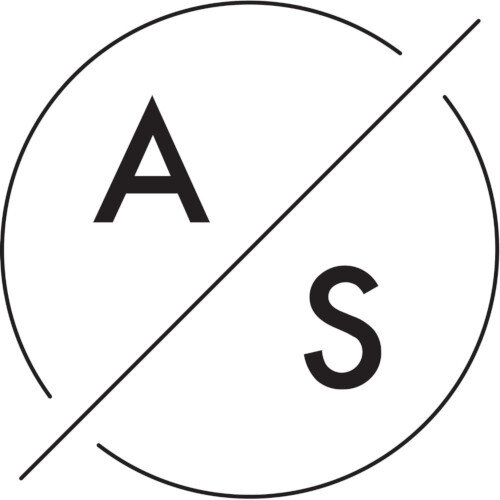Best Sanctions & Export Controls Lawyers in Acharnes
Share your needs with us, get contacted by law firms.
Free. Takes 2 min.
List of the best lawyers in Acharnes, Greece
About Sanctions & Export Controls Law in Acharnes, Greece
Sanctions and export controls are legal frameworks designed to regulate cross-border trade in certain goods, technologies and services, and to restrict dealings with designated countries, entities or individuals. In Acharnes - as in the rest of Greece - these frameworks are driven by international obligations and European Union rules, and are implemented and enforced through national legislation and administrative practice.
Key themes you will encounter include export licensing for dual-use and military items, embargoes and restrictive measures imposed by the United Nations or the European Union, asset-freeze and travel-restriction listings, customs enforcement on prohibited shipments, and criminal and administrative penalties for breaches. Businesses and individuals in Acharnes that import, export, broker or finance international trade need to understand these rules to avoid serious legal, financial and reputational risks.
Why You May Need a Lawyer
Sanctions and export-control matters can be legally complex and fact-sensitive. You may need a lawyer if you face any of the following situations:
- You receive or request an export license for dual-use goods, software or technology, or for military equipment.
- Your customer, supplier or counterparty appears on a sanctions list or you are unsure about the end-use or end-user of goods to be exported.
- Customs or law enforcement opens an investigation into a shipment, or authorities seize goods or freeze assets.
- You are considering a voluntary disclosure to authorities after a possible breach, and need advice on the risks and mitigation steps.
- You receive a compliance or audit request from regulators, banks or trading partners concerning sanctions or export-control compliance.
- You need to design, implement or update a corporate export-control and sanctions compliance program, including screening procedures and internal controls.
- You face criminal or administrative charges related to sanctions or unlicensed exports, and require representation in inquiries, prosecutions or appeals.
Local Laws Overview
Sanctions and export-control rules that apply in Acharnes come from several layers - international, EU and national:
- International obligations - Greece implements UN Security Council mandatory measures, such as arms embargoes and asset freezes adopted under UN resolutions.
- EU restrictive measures - The European Union issues common restrictive measures that are directly applicable or require national implementation. These measures cover listings, trade restrictions, financial measures and travel bans.
- EU export-control framework - The EU Dual-Use Regulation establishes controls on items, software and technology that can have both civilian and military uses. The EU Common Military List identifies military goods subject to export controls.
- National implementation and enforcement - Greek authorities translate EU and UN measures into national administrative decisions, control procedures and criminal or administrative sanctions. Competent national authorities typically include ministries responsible for foreign affairs, trade and industry, and customs - which supervise licensing, inspections and enforcement.
- Customs and transit rules - Hellenic customs authorities enforce export controls at ports and border crossings. Rules cover transit, re-export, transshipment and documentation requirements.
- Penalties and remedies - Violations can lead to administrative fines, confiscation of goods, revocation of licences, civil liability, and criminal prosecution. Businesses may also face suspension from public procurement and long-term reputational damage.
Frequently Asked Questions
What is the difference between a sanctions list designation and an export-control license requirement?
A sanctions list designation means a person, entity or country is subject to restrictive measures such as asset freezes, transaction bans or embargoes. An export-control license requirement applies to the transfer of specific goods, software or technology - typically dual-use or military items - that may require a government authorization before export. Both systems can overlap, for example when exports to a designated country or a listed person are prohibited or need special permission.
Do EU sanctions automatically apply in Acharnes?
Yes. EU restrictive measures adopted by the Council of the European Union bind all member states, including Greece, and are applicable throughout Greek territory, including Acharnes. Greek authorities implement and enforce these measures domestically.
How do I know if my product is a controlled dual-use item?
Classification depends on technical characteristics and the relevant control lists. Dual-use lists are established at EU level. To classify a product you review the control list categories, assess technical parameters and consider possible military or proliferation uses. A lawyer or an export-control specialist can help classify items and advise on license requirements.
What should a business do if a customs authority detains a shipment?
Immediately notify legal counsel and your compliance officer. Preserve documentation and communications related to the shipment - commercial invoices, contracts, packing lists, export licences, end-user certificates and correspondence. Consider voluntary disclosure if required, cooperate with authorities, and seek urgent legal advice to protect commercial interests and to navigate administrative procedures.
Can a director or manager be personally liable for export-control breaches?
Yes. Greek enforcement may target corporate officers where there is evidence of intent, gross negligence or failure to implement adequate compliance measures. Personal liability can include fines and, in serious cases, criminal charges. Having and documenting an effective compliance program reduces but does not eliminate personal risk.
What is an end-user undertaking and why is it important?
An end-user undertaking is a written statement from the buyer or recipient confirming the intended end-use and agreeing not to re-export without authorization. It helps authorities assess risk and supports licence decisions. False or misleading end-user declarations can lead to enforcement action against exporters.
Are there reporting or record-keeping obligations?
Yes. Export-control regimes commonly require exporters to retain records of licence applications, shipping documents, end-use declarations and compliance steps for a number of years. Records support due diligence, demonstrate compliance in audits, and are essential in investigations.
Can I apply for a license to export to a sanctioned country in exceptional circumstances?
Some sanctions regimes provide for limited license or authorization procedures for humanitarian or other narrowly defined exceptions. Such permissions are exceptional, strictly controlled and often require detailed documentation and prior approval from the competent authority. Legal advice is essential before seeking or relying on any exception.
How do financial sanctions affect routine business banking operations?
Financial sanctions can block transactions, freeze accounts and restrict banking services with listed persons or entities. Banks typically perform sanctions screening and may suspend services if a match is detected. Businesses should maintain robust screening processes and inform banks about legitimate transactions that may appear sensitive, in coordination with legal counsel.
How long does enforcement or administrative procedure usually take in Greece?
Timeframes vary widely depending on complexity, the competent authority and whether the matter is administrative or criminal. Administrative licence applications can take weeks to months. Investigations and court proceedings may take significantly longer. Early legal engagement can help clarify timelines and preserve rights and evidence.
Additional Resources
To learn more or to contact competent authorities and organisations, consider these resources available in Greece:
- Ministry of Foreign Affairs - for information about the implementation of international and EU sanctions.
- Ministry of Development and Investments - for export controls, licensing and industrial policy matters.
- Hellenic Customs - for customs enforcement, detention and transit issues.
- Bar Association of Athens - for finding licensed lawyers with experience in sanctions, export controls, customs and administrative law.
- Regional chamber of commerce or business associations - for practical compliance guidance and networking with local exporters and freight forwarders.
- EU publications and guidance - for the EU Dual-Use Regulation, Common Military List and EU sanctions frameworks.
- International organizations - such as UN sanctions committees and export-control regimes - for global policy context and lists that may apply in Greece.
Next Steps
If you need legal assistance in Acharnes with a sanctions or export-control issue, here are practical steps to take:
- Gather documents - assemble contracts, invoices, purchase orders, shipping documents, licences, end-user statements, communications and any notices from authorities.
- Seek immediate legal advice - contact a lawyer experienced in EU and Greek sanctions, export controls and customs law as soon as possible, particularly if goods have been detained or you face an investigation.
- Choose the right lawyer - look for practitioners with proven experience in export-control licensing, sanctions compliance, administrative procedures and, if necessary, criminal defence. Confirm language capabilities if you need assistance in English or another language.
- Be prepared to explain the commercial context - provide a clear description of the transaction, the parties involved, technical specifications of goods, supply chain steps and any due diligence already performed.
- Consider compliance improvements - use the matter as an opportunity to implement or strengthen compliance measures: risk assessments, transaction screening, internal policies, staff training and record-keeping.
- Plan for costs and timing - ask about engagement terms, likely fees and expected timeframes for immediate steps and longer-term resolution.
Early, transparent and professional handling of sanctions and export-control issues greatly improves the chance of a favorable outcome and reduces legal risk. A local counsel with relevant subject-matter expertise can guide you through licensing, interactions with authorities and dispute resolution.
Lawzana helps you find the best lawyers and law firms in Acharnes through a curated and pre-screened list of qualified legal professionals. Our platform offers rankings and detailed profiles of attorneys and law firms, allowing you to compare based on practice areas, including Sanctions & Export Controls, experience, and client feedback.
Each profile includes a description of the firm's areas of practice, client reviews, team members and partners, year of establishment, spoken languages, office locations, contact information, social media presence, and any published articles or resources. Most firms on our platform speak English and are experienced in both local and international legal matters.
Get a quote from top-rated law firms in Acharnes, Greece — quickly, securely, and without unnecessary hassle.
Disclaimer:
The information provided on this page is for general informational purposes only and does not constitute legal advice. While we strive to ensure the accuracy and relevance of the content, legal information may change over time, and interpretations of the law can vary. You should always consult with a qualified legal professional for advice specific to your situation.
We disclaim all liability for actions taken or not taken based on the content of this page. If you believe any information is incorrect or outdated, please contact us, and we will review and update it where appropriate.









